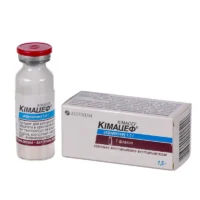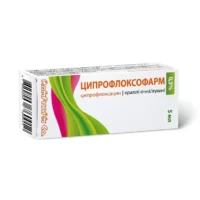Description
Roxipim (cefepime) Powder for Solution for Injections 1g
Ingredients:
Each vial contains 1g of cefepime. The solvent provided is 10 ml for reconstitution.
Dosage:
The dosage of Roxipim should be determined by a healthcare professional based on the specific condition being treated. It is typically administered intravenously every 8 to 12 hours.
Indications:
Roxipim is indicated for the treatment of various bacterial infections, including pneumonia, urinary tract infections, skin and soft tissue infections, and intra-abdominal infections.
Contraindications:
Do not use Roxipim if you are allergic to cefepime or any other cephalosporin antibiotics. It is important to inform your healthcare provider of any allergies before starting treatment.
Directions:
Roxipim is for intravenous use only. It should be reconstituted with the provided solvent according to the package insert instructions. The reconstituted solution should be clear and colorless.
Scientific Evidence:
Cefepime, the active ingredient in Roxipim, is a fourth-generation cephalosporin antibiotic with broad-spectrum activity against many gram-positive and gram-negative bacteria. Studies have shown its efficacy in treating severe infections, including those caused by multidrug-resistant organisms (MDROs).
Additional Information:
It is essential to complete the full course of treatment with Roxipim as prescribed by your healthcare provider, even if you start to feel better before the treatment is finished. Failure to complete the full course can lead to the development of antibiotic resistance.
Pharmacological Effects:
Cefepime exerts its bactericidal effects by inhibiting bacterial cell wall synthesis. It penetrates the bacterial cell wall more effectively than earlier cephalosporins, resulting in increased activity against a broader range of pathogens. This mechanism of action makes it a valuable option for the treatment of serious infections.
Clinical Trials and Comparative Effectiveness:
- Roxipim contains 1g of cefepime per vial.
- Reconstitute with 10 ml of the provided solvent.
- Administer intravenously every 8 to 12 hours.
- Inform your healthcare provider of any allergies before use.





